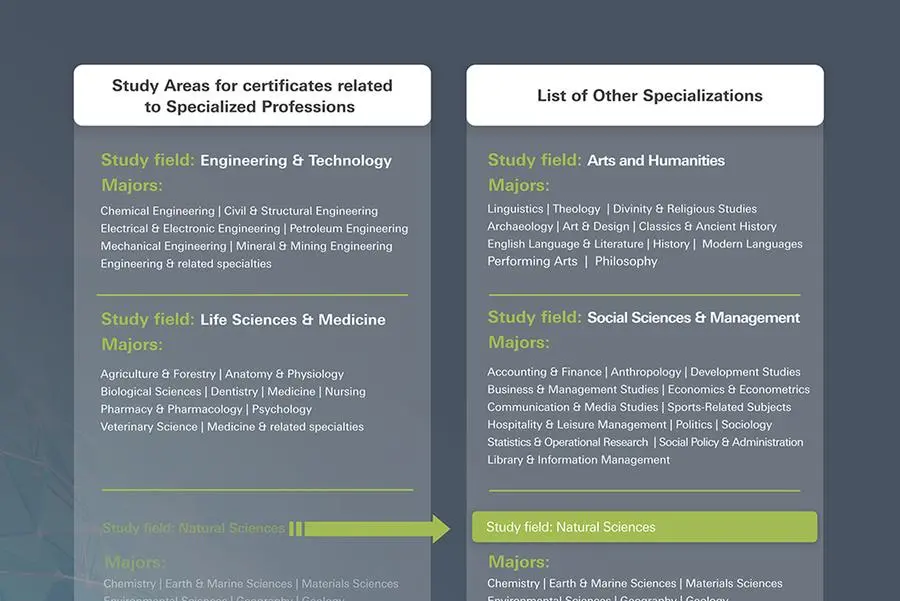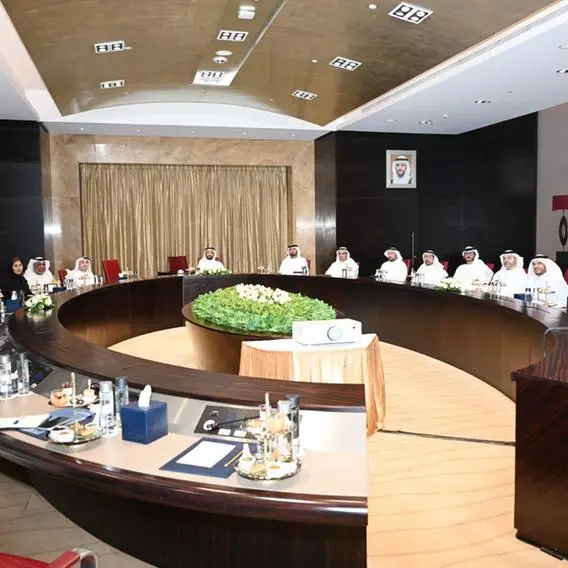PHOTO
Hassan AlSayegh:
- The Ministry took proactive steps to launch the second phase of the system, based on ongoing monitoring and efforts to improve it
- The system showed positive outcomes that align with the objectives of the Zero Government Bureaucracy Programme
- The new amendments facilitate the recognition procedures for university certificates issued by foreign HEIs for more academic specialisations, in line with international university rankings and the standards set by the Ministry
Subtitles:
- The system decreased the number of documents needed to recognise foreign HEIs certificates by 85%, reduced transaction execution time by 50% and halved the steps required for certificate recognition
- As the global ranking of the HEI granting the degree increases, the procedures for degree recognition decrease, in order to improve the quality of higher education outcomes
- More than 60,000 students in foreign HEIs are expected to benefit from the system in 2024
- Reducing recognition requirements for certificates issued by foreign higher education institutions for some specialisations, including: Architecture and Built Environment, Computer Science and Information Systems, Data Sciences, Natural Sciences, Education and Training, as well as Law and Legal Studies
Dubai, United Arab Emirates: As part of its ongoing efforts to build an integrated and comprehensive educational system that provides top-notch services to students and aligns with the Zero Government Bureaucracy Programme, the Ministry of Education (MoE) has launched the second phase of the ‘University Certificates Recognition’ system for degrees issued by foreign higher education institutions (HEIs). The enhancements enable more graduates from foreign HEIs to benefit from the system's features for facilitating the recognition procedures of their qualifications while ensuring the validity, reliability and integrity of the process.
The launch of the second phase of this transformation project follows the success of the first phase of the University Certificates Recognition system, which was launched last year. The first phase significantly reduced customer complaints by 85% and boosted customer satisfaction to 90%, based on the Customer Pulse rating in the month of May. Additionally, the system updates decreased the number of documents needed to recognise foreign HEIs certificates by up to 85% and reduced transaction execution time by 50%. Moreover, this transformation project halved the steps required for certificate recognition.
More than 60,000 students in foreign HEIs are expected to benefit from the new system updates in 2024, as they will get faster, more efficient, and more flexible digital services that will help them complete their academic studies or enter the labour market easily.
Dr. Hassan AlSayegh, Advisor to the Minister of Education and the Head of the Customer Experience Transformation Committee at the MoE, noted that the MoE has taken proactive steps to launch the second phase of the 'University Certificates Recognition' system for certificates issued by foreign higher education institutions (HEIs), based on user feedback, ongoing monitoring and development efforts over the past period.
He stressed that since its launch last year, the system has shown positive outcomes that align with the objectives of the Zero Government Bureaucracy Programme. These outcomes have encouraged the Ministry to continue adopting an agile approach and apply further developments that have a significant positive impact on a larger group of students.
Dr. Hassan AlSayegh added: “The amendments in the second phase aim to facilitate the recognition criteria for university certificates issued by foreign HEIs, allowing for more academic specialisations. This includes greater flexibility in standards, in line with international university rankings and the standards set by the Ministry. Typically, as the global ranking of the HEI granting the degree increases, the requirements for degree recognition decrease. This falls within the Ministry’s efforts to improve the quality of higher education outcomes and encourage students to pursue high-quality education at top-tier universities.”
According to the new updates included in the second phase of the system, the recognition requirements for certificates issued by foreign higher education institutions are now reduced for some specialisations, including: Architecture and Built Environment, Computer Science and Information Systems, Data Sciences, Natural Sciences, Education and Training, as well as Law and Legal Studies.
All information and requirements related to the ‘University Certificates Recognition’ system for certificates issued by foreign HEIs are available on the MoE’s website. The Ministry also invites current and past graduates from foreign HEIs to benefit from the new amendments and complete the recognition procedures for their university certificates in a fully digital manner by visiting the MoE’s website.




















